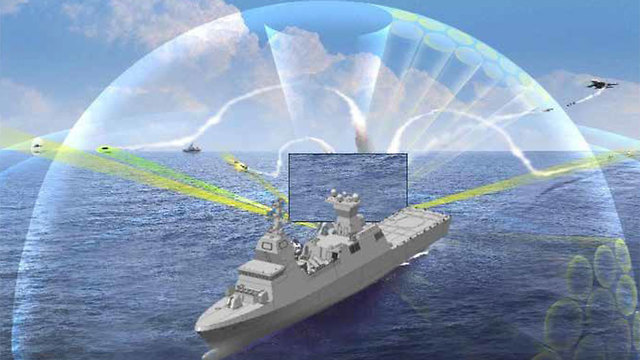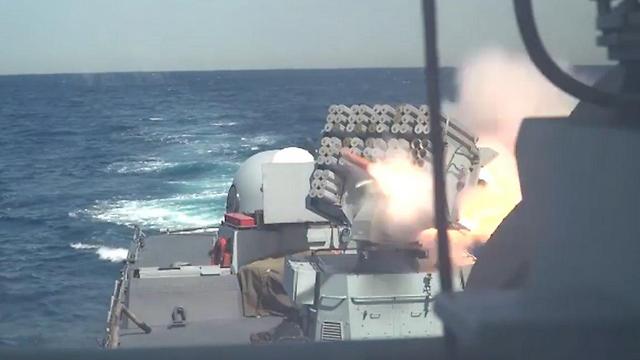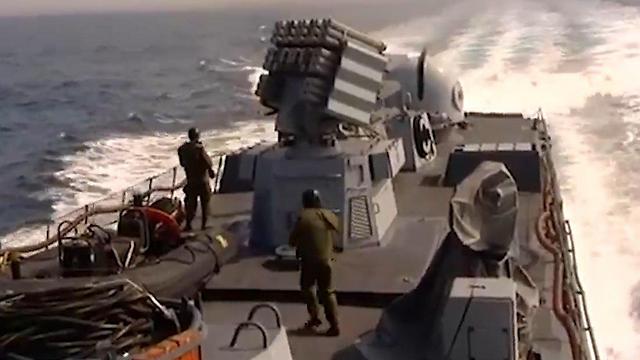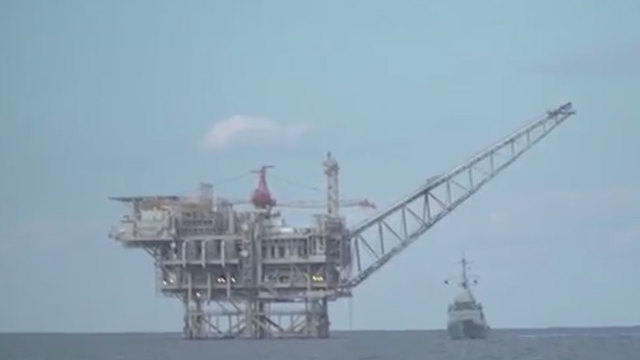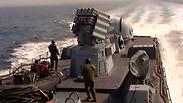

Israel preparing for Hezbollah maritime threat on gas rigs with German ships
Navy prepares to cope with Hezbollah’s weapons arsenal posing danger to gas drilling sea rigs with purchase of 4 German Sa'ar 6-class missile corvettes to include missile defense rockets, Adir radar, cyber warfare; 3 new submarines also on the way.
The military does not necessarily believe that a war in the north is imminent, but the Navy must prepare to cope with Hezbollah’s weapons arsenal that can pose a danger to the Israeli gas drilling rigs in the Mediterranean Sea and may potentially shut down the Israeli economy.
German shipbuilders have recently begun work on four defense ships that Israel is purchasing to defend the gas fields and its territorial waters. Almost three quarters of the electricity produced in Israel relies on those gas fields.
The first ship will arrive at the beginning of 2020, but outfitting it with weapons and tactical systems will take another year and a half.
The four new ships will be the largest in the Navy’s fleet. In addition to the dozens of interception missiles of the naval Iron Dome system and the Barak 8 system, each ship will come equipped with highly precise offensive missiles.
The ships will also be mounted with cyber and electronic warfare systems and the Adir radar system and will be commanded by an officer with the rank of lieutenant-colonel.
The new ships, Sa'ar 6-class corvettes, will have a slightly lower speed than the current Sa’ar models, four of which were recently retired. Each ship will carry a crew of 70 marines, similar to current models, and will be assisted by unmanned aerial vehicles, new naval helicopters, satellite intelligence and coastal radars.
The Tamar gas rig is currently active and will be joined in the coming years by additional rigs in new gas fields, comprising 44,000km of sea to be defended by the Navy.
“As a matter of routine, one missile boat patrols Israel’s territorial waters while the remaining ships are to establish naval superiority,” said a senior officer in the Navy. “During an emergency, we will need a ship near each rig.” The installation of the electronic systems will be carried out at the Navy's shipyards.
Regarding submarines, the officer said that an understanding was signed in October between Israel and Germany for the purchase of three new vessels. The Navy will soon begin planning how to deploy the submarines, scheduled to arrive in the middle of the next decade and gradually replace the three Dolphin class submarines the Navy currently operates.
“The minimum of submarines necessary at any given time is five, ideally six, but we never planned to have nine,” clarified the officer, referring to the scandal and ongoing investigation regarding the purchase of additional submarines.
The officer also said that Hezbollah is in possession of precise missiles, of Iranian manufacture, that can hit Israeli gas drilling rigs. “We must always be alert, there is no Iranian naval presence here and the Syrian Navy does not go out to sea, but Iranian missiles in the hands of Hezbollah can be launched from small vessels, manned or unmanned. Hezbollah radiates naval power even without having any ships or submarines. The Iranian presence is a game-changer.”
Ballistic or cruise missiles fired from the Lebanese or Syrian coast can reach the Israeli rigs within 2.5 minutes. If the rig is “cold” and no gas is being pumped at the time, the damage will put it out of commission for a few weeks, but if it sustains a missile strike while gas is being pumped, the entire rig will be destroyed.
The decision regarding shutting down rig operations is made between the energy company and the government, with the Navy in an advisory role. The cost of security for the rigs, some $3 billion, is also a matter of dialogue between the two parties.














